 48 citations,
January 2011 in “Hormone Research in Paediatrics”
48 citations,
January 2011 in “Hormone Research in Paediatrics” The conclusion is that genetic changes in the glucocorticoid receptor can lead to conditions affecting stress response, immunity, and metabolism, requiring personalized treatment.
 32 citations,
February 2008 in “Journal of the American Academy of Dermatology”
32 citations,
February 2008 in “Journal of the American Academy of Dermatology” KFSD is a genetic disorder causing hair loss and skin issues, with no effective treatment.
 30 citations,
June 2016 in “Journal of Human Genetics”
30 citations,
June 2016 in “Journal of Human Genetics” Researchers found genetic mutations causing hypohidrotic ectodermal dysplasia in 88% of studied patients and identified new mutations and genetic variations affecting the disease.
 12 citations,
February 2021 in “Translational Psychiatry”
12 citations,
February 2021 in “Translational Psychiatry” Researchers found two new genetic variants linked to Alzheimer's disease.
 11 citations,
May 2011 in “World Journal of Pediatrics”
11 citations,
May 2011 in “World Journal of Pediatrics” The document emphasizes the importance of correctly identifying and classifying genetic hair disorders to help diagnose related health conditions.
 6 citations,
June 2018 in “Journal of pediatric endocrinology & metabolism/Journal of pediatric endocrinology and metabolism”
6 citations,
June 2018 in “Journal of pediatric endocrinology & metabolism/Journal of pediatric endocrinology and metabolism” Patients with the same genetic mutation for vitamin D-resistant rickets showed different symptoms but all improved with treatment except for hair loss.
1 citations,
January 2022 in “Springer eBooks” 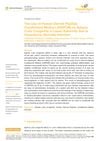 1 citations,
March 2019 in “KnE life sciences”
1 citations,
March 2019 in “KnE life sciences” HDPCM treatment healed a baby's congenital skin defect caused by varicella infection.
 1 citations,
June 2023 in “Genes”
1 citations,
June 2023 in “Genes” Hair loss from Alopecia Areata is caused by both genes and environment, with several treatments available but challenges in cost and relapse remain.
 August 2022 in “Frontiers in genetics”
August 2022 in “Frontiers in genetics” A new genetic change in the DSC3 gene is linked to a rare condition causing hair loss and skin blisters in a child.
February 2023 in “European biophysics journal”  November 2017 in “Elsevier eBooks”
November 2017 in “Elsevier eBooks” PCOS is a genetic disorder affecting women's reproductive health, with treatments focused on symptoms like insulin resistance and fertility.
 October 2007 in “Journal of Investigative Dermatology”
October 2007 in “Journal of Investigative Dermatology” The meeting highlighted the genetic basis of female pattern hair loss and various skin health insights.
 174 citations,
November 2016 in “Cell stem cell”
174 citations,
November 2016 in “Cell stem cell” Different types of skin cells have unique genetic markers that affect how likely they are to spread cancer.
 87 citations,
March 2014 in “Biochimica et Biophysica Acta (BBA) - Molecular and Cell Biology of Lipids”
87 citations,
March 2014 in “Biochimica et Biophysica Acta (BBA) - Molecular and Cell Biology of Lipids” Cholesterol sulfate buildup due to a genetic mutation disrupts the skin barrier, leading to the scaling skin seen in X-linked ichthyosis.
 47 citations,
February 2015 in “European Journal of Clinical Investigation”
47 citations,
February 2015 in “European Journal of Clinical Investigation” The review suggests thorough evaluation and genetic testing for proper diagnosis and treatment of Chrousos syndrome.
 34 citations,
October 2011 in “Pathology Research International”
34 citations,
October 2011 in “Pathology Research International” Behçet's Disease may be caused by genetic and environmental factors leading to abnormal immune responses, and stress management and new treatments could improve patient outcomes.
16 citations,
January 2010 in “Journal of Korean medical science/Journal of Korean Medical Science” A Korean boy's skin and digestive symptoms were caused by a rare genetic disorder that affects zinc absorption, and he got better with zinc supplements.
 7 citations,
November 2014 in “Histochemistry and Cell Biology”
7 citations,
November 2014 in “Histochemistry and Cell Biology” The we/we wal/wal mice have defects in hair growth and skin layer formation, causing hair loss, useful for understanding alopecia.
 2 citations,
January 2019 in “Medizinische Genetik”
2 citations,
January 2019 in “Medizinische Genetik” The document reports findings on genetic research, including ethical concerns about genome editing, improved diagnosis of mitochondrial mutations, solving inherited eye diseases, confirming gene roles in epilepsy, linking a gene to aneurysms, and identifying genes associated with age-related macular degeneration.
 2 citations,
May 2017 in “International journal of pharmacy and pharmaceutical sciences/International Journal of Pharmacy and Pharmaceutical Sciences”
2 citations,
May 2017 in “International journal of pharmacy and pharmaceutical sciences/International Journal of Pharmacy and Pharmaceutical Sciences” Hutchinson-Gilford Progeria Syndrome is a rare genetic disorder caused by a specific gene mutation, characterized by aging symptoms and managed by monitoring heart health and using low-dose aspirin.
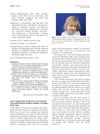 2 citations,
August 2012 in “Journal of the American Academy of Dermatology”
2 citations,
August 2012 in “Journal of the American Academy of Dermatology” Two patients with the same genetic mutation had both blistering skin and easily pulled out hair.
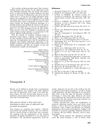 2 citations,
June 2006 in “Experimental dermatology”
2 citations,
June 2006 in “Experimental dermatology” Skin patterns form through molecular signals and genetic factors, affecting healing and dermatology.
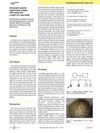 1 citations,
August 2011 in “Dermatology Reports”
1 citations,
August 2011 in “Dermatology Reports” Two siblings were found to have a genetic condition causing progressive hair loss and woolly hair, which may often be misdiagnosed.
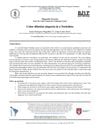 November 2022 in “Brazilian journal of veterinary pathology”
November 2022 in “Brazilian journal of veterinary pathology” The Yorkshire terrier has a genetic hair loss condition not improved by treatment.
 November 2009 in “Journal of Pediatric Nursing”
November 2009 in “Journal of Pediatric Nursing” Nonclassic congenital adrenal hyperplasia is a common genetic disorder that can cause a range of symptoms and requires personalized treatment.
 147 citations,
January 2003 in “American journal of clinical dermatology”
147 citations,
January 2003 in “American journal of clinical dermatology” The document concludes that accurate diagnosis of ichthyosis is crucial for treatment and genetic advice, and ongoing research is needed for better therapies.
 32 citations,
April 2013 in “Anais Brasileiros de Dermatologia”
32 citations,
April 2013 in “Anais Brasileiros de Dermatologia” The document concludes that inherited epidermolysis bullosa is a challenging genetic condition requiring multidisciplinary care and new treatments.
24 citations,
March 2011 in “The American journal of pathology” AIRE protein, defective in APECED patients, is found in skin and hair cells and interacts with cytokeratin 17.
 4 citations,
December 2020 in “Dermatologic Therapy”
4 citations,
December 2020 in “Dermatologic Therapy” Ellis van Creveld syndrome, a rare genetic disorder, can cause unexpected abnormalities in various body organs, requiring thorough patient evaluations.

























